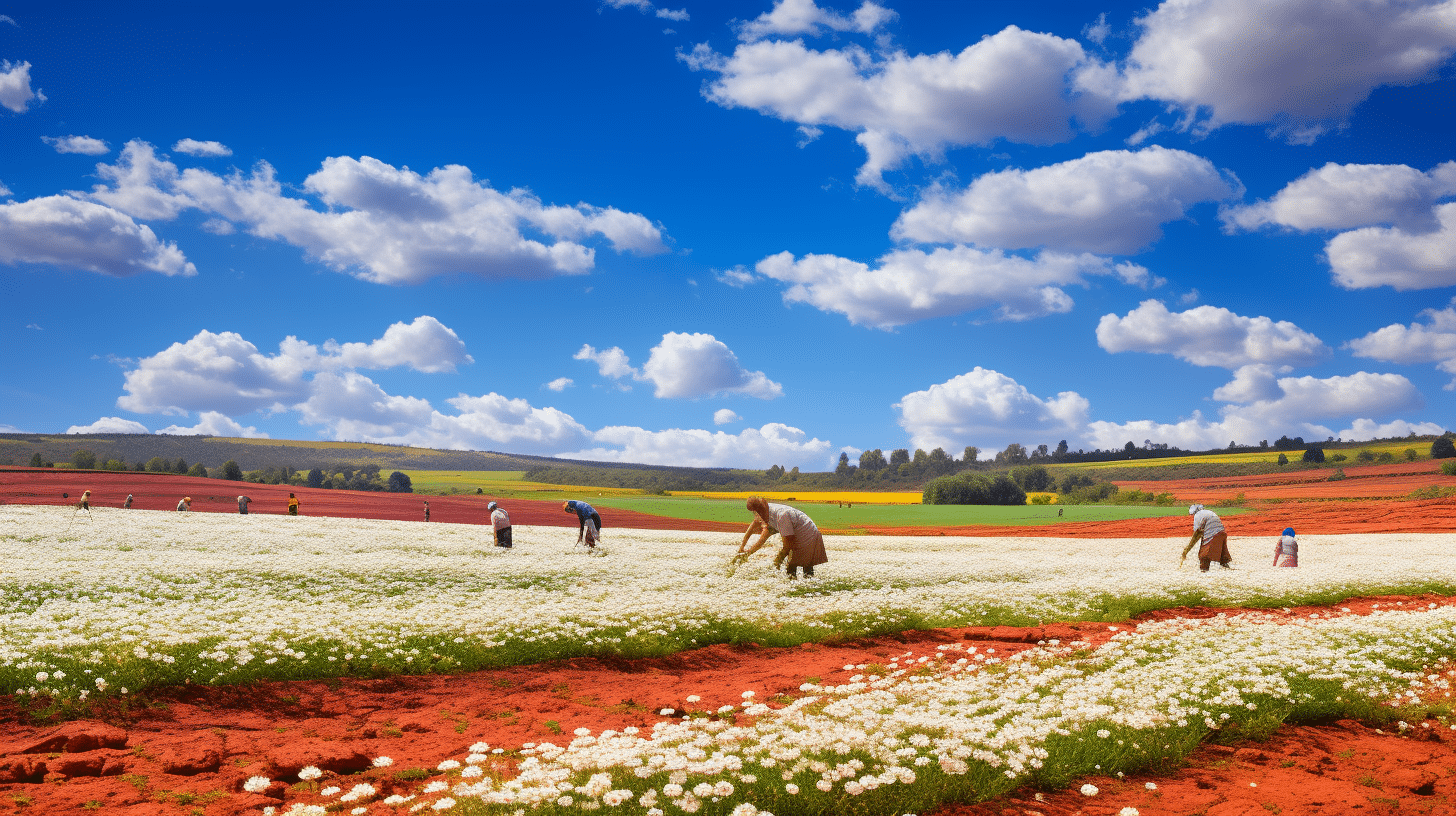Pyrethrum was introduced in Kenya by European farmers who settled in the highland regions of the country. It is grown for its white flowers which are precious and are harvested for processing. The flowers contain a substance that is called pyrethrine which is used to manufacture insecticides. It is also a major component in the manufacture of disinfectants that are used to remove unseen germs and prevent infections. Marketing of pyrethrum is done through pyrethrum board of Kenya and it is sold to them through cooperatives among the farmers groups.
Certain climatic conditions favour the growth of the plant in Kenya and they include; adequate amounts of rainfall between 1000mm to 1500mm and the distribution all year round should be uniform. The temperatures should also be cool, the soils should be deep and well drained volcanic soils with the area being of high altitude between 1500m to 3000m above sea level.
Pyrethrum growing areas are; Nyandarua, Kiambu, Kisii, Nyamira, Nakuru, Bomet, Kericho, Koibatek, Nandi, Nyeri, Laikipia, Murang’a, Mt Elgon. The factor that stands out about these areas is that the areas receive good rainfall amounts and the temperatures are cooler.
Pyrethrum greatly contributes to the economy of Kenya. Kenya earns foreign exchange from the exports of pyrethrum. Pyrethrum farming is also a source of income to pyrethrum farmers thereby improving on the ability of people to depend on themselves hence reducing on the unemployed people in the country.
Income generated from pyrethrum farming has helped to improve the living standards of the farmers in the country. Industrial extraction of pyrethrum is also a source of employment for youths who provide labour in the industries. Establishment of the industries that manufacture insecticides and disinfectants has also led to the economic development and industrial growth which boost the country’s economy.



0 comments